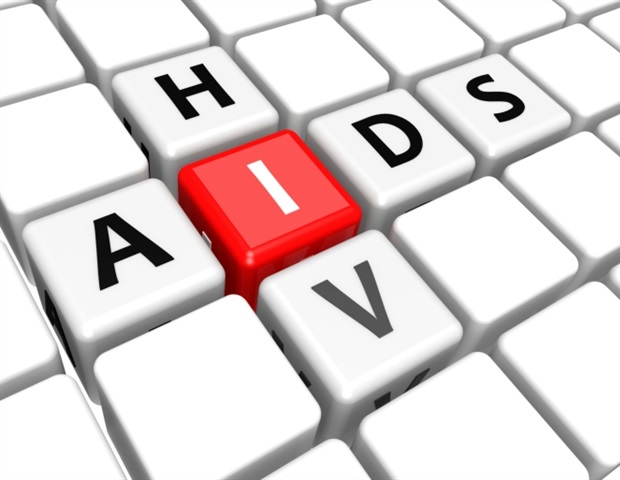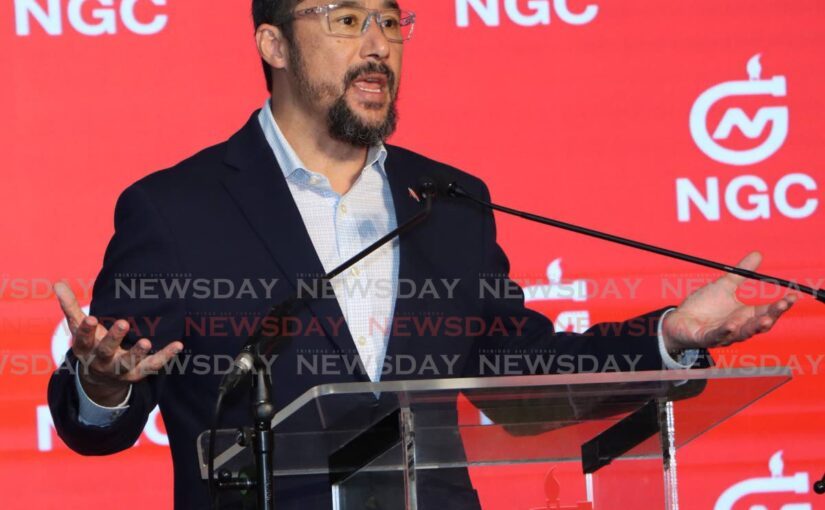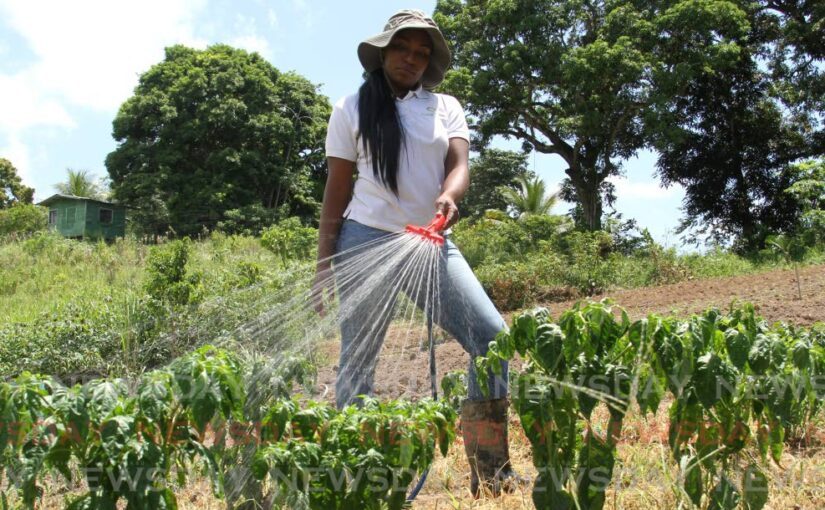Promising new drugs to prevent and treat HIV have the potential to transform the response to the disease. But getting these drugs to those who need it...
Vous n'êtes pas connecté
- English
- Français
- عربي
- Español
- Deutsch
- Português
- русский язык
- Català
- Italiano
- Nederlands, Vlaams
- Norsk
- فارسی
- বাংলা
- اردو
- Azərbaycan dili
- Bahasa Indonesia
- Հայերեն
- Ελληνικά
- Bosanski jezik
- українська мова
- Íslenska
- Türkmen, Түркмен
- Türkçe
- Shqip
- Eesti keel
- magyar
- Қазақ тілі
- Kalaallisut ; kalaallit oqaasii
- Lietuvių kalba
- Latviešu valoda
- македонски јазик
- Монгол
- Bahasa Melayu ; بهاس ملايو
- ဗမာစာ
- Slovenščina
- тоҷикӣ ; toğikī ; تاجیکی
- ไทย
- O'zbek ; Ўзбек ; أۇزبېك
- Tiếng Việt
- ភាសាខ្មែរ
- རྫོང་ཁ
- Soomaaliga ; af Soomaali
Rubriques :
 Maroc - EURASIAREVIEW.COM - A la une - 12/Jan 23:57
Maroc - EURASIAREVIEW.COM - A la une - 12/Jan 23:57
HIV Drug Access Crisis Persists Despite Trial Success – Interview
Promising new drugs to prevent and treat HIV have the potential to transform the response to the disease. But getting these drugs to those who need it most will be critical, says Beatriz Grinsztejn, president of the International AIDS Society. Grinsztejn is the first Latin American to head the IAS, which has been advocating since the 1980s for science-based HIV policies, free from stigma. Leading research at the Evandro Chagas National Institute of Infectious Diseases in Rio de Janeiro, Grinsztejn has a long history as a pioneer in the field and says prioritising poorer countries is her central focus. She spoke to SciDev.Net about addressing inequities, combating stigma and criminalisation, and advocating for key populations to ensure a robust HIV response that is truly universal. How has your tenure as IAS president been so far? Honestly, it has been an incredible opportunity. I am learning a lot and dealing with different regions and stakeholders and regions, which has been both enriching and challenging. It’s the first time someone from my region has got to this position. So, it means a lot for me as a woman from Latin America to have the opportunity to be IAS president. And it’s a lot of work. What are your priorities as IAS president? Being someone from the global South, my major priority is to put the global South at the centre. We have a lot to say and we are very diverse. I am not an expert in Africa, but my perspective is rooted in the global South. My objective is to make us visible and to bring our needs to the centre of the table for discussion. This means prioritising access to new technologies [for low- and middle-income countries]. Above all, it’s about addressing stigma, discrimination, and criminalisation. In the different regions, we face different challenges regarding human rights. With the advance of right-wing ideologies in several countries, these challenges have grown significantly. Another focus is on key populations—different groups depending on the region—but the goal is to put these hidden people at the centre of the discussion, because we need to work for them. What challenges do regions such as Africa and Latin America face around access to HIV medicines? We have recently seen impressive results from the Purpose 1 and 2 studies, which evaluated the efficacy of [the drug] lenacapavir for prevention of HIV. In the Purpose 1 study, conducted among young women in Africa and presented by Linda-Gail Bekker at the AIDS 2024 conference in Munich last July, we saw impressive results: no HIV infections among the group of women who use lenacapavir. Since then, we have seen the results from Purpose 2, first presented in Lima at the 5th HIV Research for Prevention conference, also showing very impressive results. Gilead [the US pharmaceutical company which developed lenacapavir] has positioned itself to work on the licensing for generic versions of the drug. They have contracted six different factories that will produce the generics, but it will take years until we have these products. This license only covers 120 countries, and countries in Latin America, who contributed massively to the study for Purpose 2, are out of the agreement. Access is a major topic for us at the IAS. We really aim to bring this topic to discussion with stakeholders, with advocates, and use our voice to promote access. That needs to go much beyond this licensing that was already signed. We also have long-acting cabotegravir [a drug used for the treatment of HIV/AIDS], which … has been available for four years now. Generic production was only agreed upon two years ago. The agreement was signed with the Medicines Patent Pool, and of course, there is very limited access to cabotegravir. How do these issues specifically affect key populations? In Latin America, we’re seeing rising HIV infections among young men who have sex with men and transgender women. These groups are disproportionately affected, yet interventions like pre-exposure prophylaxis [PrEP, a medicine that can reduce the risk of getting HIV] are not scaling up fast enough. While countries like Brazil have made progress, many other nations in the region lag behind. Similarly, in Africa, key populations face unique challenges tied to criminalisation and stigma. These barriers lead to lower rates of viral suppression among these groups compared to the general population. It’s crucial to tailor our interventions to meet their specific needs. Criminalisation is a big point for us, and we want to bring the conversation on human rights and criminalisation as a central topic for us at the IAS. Criminalisation of LGBT people in Africa, homophobia and transphobia in Latin America are major issues. What are the sticking points preventing progress? One major issue is the lack of strong health systems. Many low- and middle-income countries (LMICs) struggle to absorb and scale up new technologies. Stigma and discrimination—both within health systems and society—also play a significant role. Legal reforms are needed to address criminalisation, but funding for such initiatives is often inadequate.What about treatment options in low- and middle-income countries? We also need to make progress in regard to treatment. People have issues in regard to using oral PrEP and many people also have issues in keeping adherence to antiretroviral therapy. We now see a gap between the richer countries and us, the LMICs, in regard to what kind of antiretroviral treatment is available. In guidelines of almost all rich countries you have long-acting antiretrovirals as an important option and it’s completely out of any guideline that serves LMICs. I believe we are moving slower than needed, but we are moving. At this point … we need to stay more united than ever so that we can guarantee that we don’t lose the rights that were already achieved. And guarantee that we have enough funding as well. Keeping HIV, the financing of the HIV response, as a major topic for us, is critical at this point where we need to discuss the replenishment of the Global Fund [to Fight AIDS, Tuberculosis and Malaria]. So we need to be together, unite our voices so that we can keep the AIDS response in the centre. How positive do you feel about progress in tackling HIV? While progress is slower than we’d like, there have been significant advancements in HIV prevention and treatment technologies. Innovations like lenacapavir and long-acting cabotegravir have the potential to transform HIV care—if made accessible. However, the real work begins with ensuring these technologies reach the people who need them most. This piece was produced by SciDev.Net’s Sub-Saharan Africa English desk.
Articles similaires
Public health approach to violence: Focus on children and adolescents
Dr Asha Pemberton teenhealth.tt@gmail.com AS WE begin the New Year, we find ourselves immersed in dialogue surrounding our current societal state...
WHO announces the development of new guidelines for lenacapavir and updated HIV testing guidelines
GENEVA, Switzerland – WHO is convening a Guideline Development Group (GDG) for the development of new guidelines on the use of injectable...
Young and intelligent way to go
THE EDITOR: I have been advocating for decades that TT needs our young and intelligent people to take us forward. The resignation of Dr Rowley and...
Malala Yousafzai Asks Muslim Leaders To Reject Taliban’s Treatment Of Afghan Women Openly
By Ayaz Gul Nobel Peace Prize laurate Malala Yousafzai urged Muslim leaders Sunday not to “legitimize” Afghanistan’s ruling Taliban,...
Putin will start thinking about peace only when he runs out of money. Sanctions are needed, – Zelenskyy at the Ramstein meeting
President Volodymyr Zelenskyy called on partners to strengthen sanctions against Russia and its energy sector. "We need to maintain pressure on...
Can We Have Health Care Without Health Insurance Companies? – OpEd
In the aftermath of the senseless murder of the CEO of UnitedHealthcare, responsible commentators were quick to condemn the act. “Murder is bad,...
Clean Cooking in NDCs Offer Opportunities to Reach SDG7 and Climate Goals
There is an urgent need for the international community to support access-deficit countries through the improvement of their NDCs.
Businesses call for focus on vulnerable sector for 2025
The year 2024 was a big year for economic diversification, with the manufacturing sector continuing its upward expansion and engagement through trade...
Legal practitioners seek improved infrastructure, reformative judicial system in 2025
By Chidinma Ewunonu-AlukoSome legal practitioners have called for sustained improvement in judicial infrastructure, processes and systems to improve...
Les derniers communiqués
-
Adobe Brings Conversational AI to Trillions of PDFs with the New AI Assistant in Reader and Acrobat
Adobe - 21/02/2024
-
Laura Frigenti takes the Helm as Chief Executive Officer of the Global Partnership for Education
Global Partnership for Education - 05/12/2022





